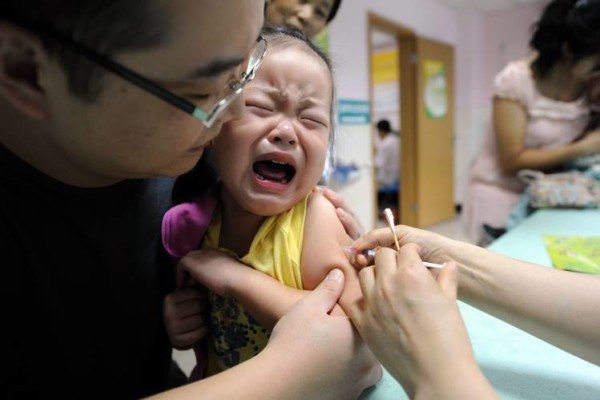China: 37 Arrested in Shandong over Vaccine Scandal
Thirty-seven people have been arrested in Shandong, eastern China, over a huge vaccine scandal, the Chinese state media report.
Shandong police announced last month they had arrested a mother and her daughter accused of buying and selling vaccines illegally.
The estimated $88 million worth of vaccines were not properly refrigerated or transported.
The illegal vaccine ring, said to have been in operation since 2011, has sparked widespread anger in China.
The scandal has led to a crackdown, with checks ordered on vaccine makers, wholesalers and buyers.
The products were bought from a variety of sources, both licensed and unlicensed, then sold on to both illegal agents and legal local disease control and prevention centers at inflated prices, reported the Xinhua news agency.
The ring is alleged to have involved hundreds of people across 20 provinces, it said.
Though authorities had known about it since April 2015, they only made the news public on March 18 when they issued a call demanding that suppliers come forward to help them trace potential victims.
The delay has angered many people in China who questioned why the authorities had not alerted the public earlier.
Local authorities have now been given a deadline of March 25 to identify who bought the medicines.
Three pharmaceutical companies are being investigated, Xinhua reports, citing people handling the case. One, Shandong Zhaoxin Bio-tech Co, has been ordered to suspend operations, it added.
The China office of the World Health Organization (WHO) said vaccines needed to be handled properly or they can become less effective.
It stressed that improperly kept vaccines did not in themselves present much danger.
“It is important to note, however, that improperly stored or expired vaccine seldom if ever causes a toxic reaction. Therefore there is likely to be minimal safety risk in this particular situation,” the WHO said.

